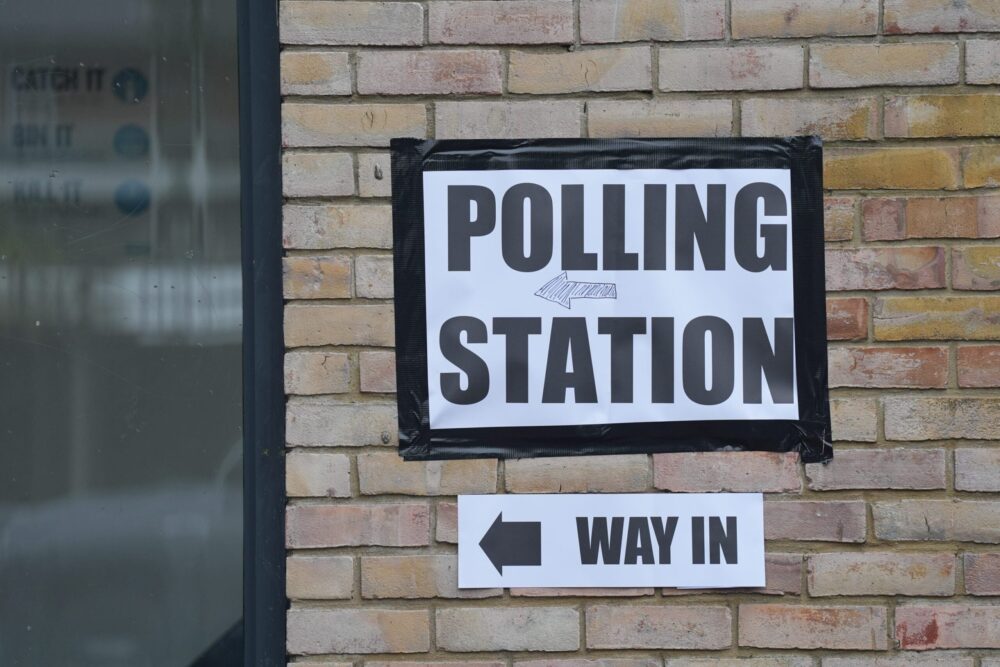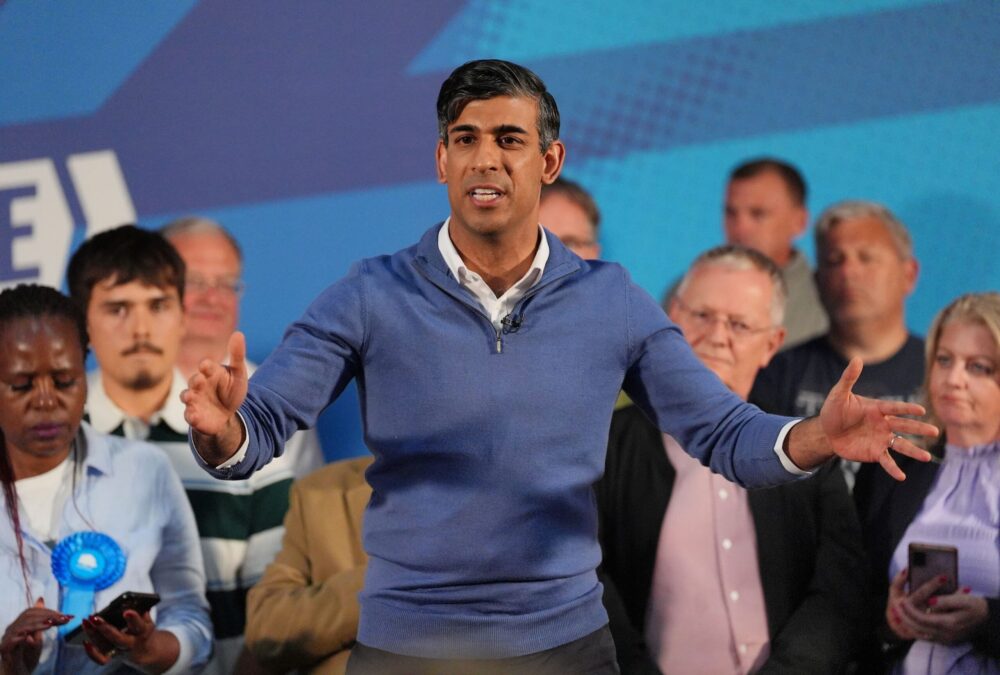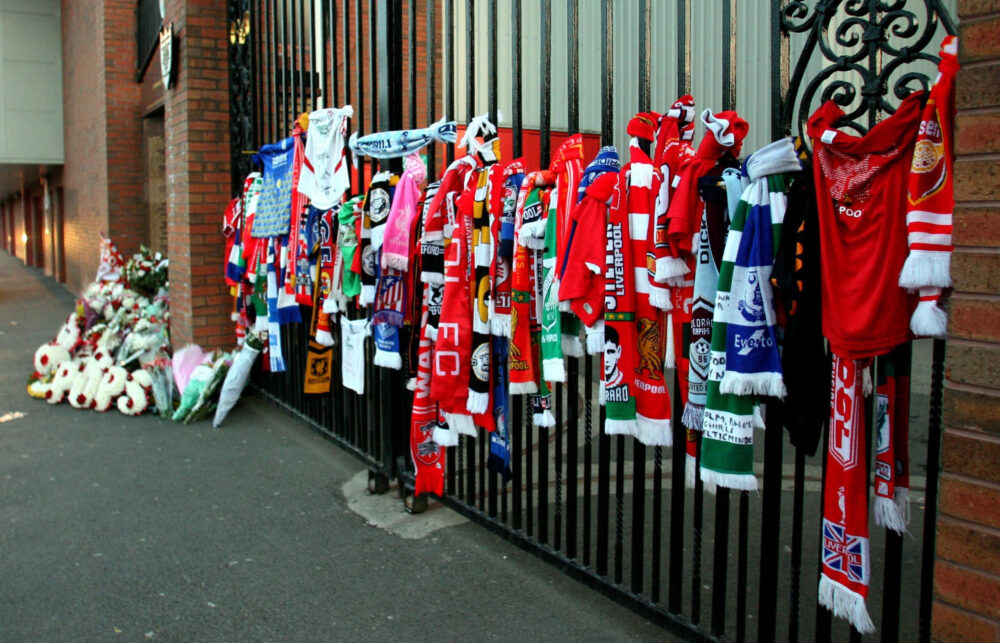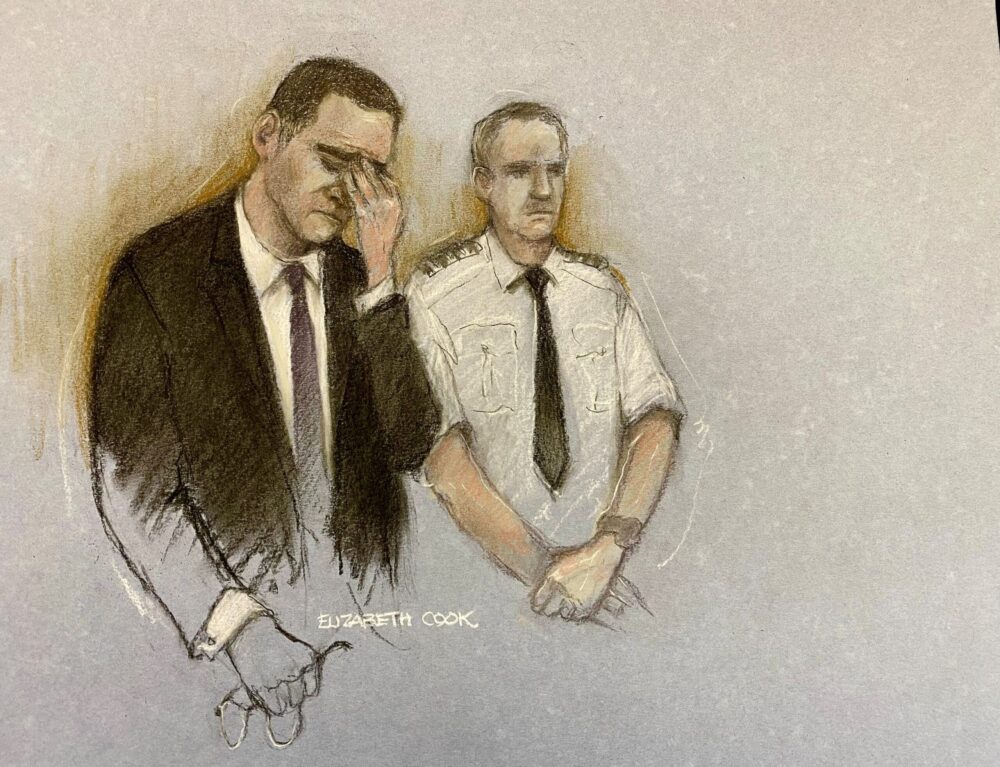
UK News
Everything you need to know about this year’s UK General Election
2 years ago

As the UK gears up for another General Election, voters across the nation are preparing to head to the polls.
With 48 hours until the polls open for the UK General Election on July 4 it’s full steam ahead for the party leaders. Here’s everything you need to know about this crucial democratic event.
Key Dates and Timeline
Election Date: The General Election will take place on Thursday, 4th July 2024. Polling stations will be open from 7:00 AM to 10:00 PM.
Registration Deadline: If you’re not already registered to vote, it is now too late to take part in the General Election on July 4. You can register online at the official government website.
Major Parties and Leaders
The election will see a range of political parties competing for seats in the House of Commons. Here are the main contenders:
- Labour Party – Led by Keir Starmer, Labour is aiming to win back control with promises of increased public spending, climate action, and social justice reforms.
- Conservative Party – Led by Prime Minister Rishi Sunak, the Conservatives are seeking to retain their majority and continue their current policies on the economy, healthcare, and Brexit.
- Liberal Democrats – Under the leadership of Ed Davey, the Lib Dems are focusing on issues such as electoral reform, mental health, and a pro-European stance.
- Green Party – Co-led by Carla Denyer and Adrian Ramsay, the Greens are advocating for radical environmental policies and social equality.
- Scottish National Party (SNP) – Led by John Swinney, the SNP is campaigning primarily on the issue of Scottish independence and seeking to increase their influence in Westminster.
- Reform UK – Led by Nigel Farage, this party is focused on reforming public institutions and a hardline stance on Brexit.
Here is your guide to the main developments expected in the General Election campaign on Tuesday, July 2:

Rishi Sunak will urge wavering Tory voters to stick with his party to ensure a swing away from a huge Labour majority.
As he campaigns in the south east of England, the Prime Minister will argue the outcome of the election is not a “foregone conclusion”.
Speaking in Oxfordshire, he will say: “If just 130,000 people switch their vote and lend us their support, we can deny Starmer that supermajority.”
He will add: “So, we must redouble our efforts in these final days and deliver the strongest Conservative voice in the next parliament.
“We are fighting for the future of our country and every door we knock on, every leaflet we deliver and every call we do will make a difference.”

Keir Starmer is expected to spend one of the final days on the campaign trail making multiple visits across England.
The Labour leader will warn voters of the risk of waking up on July 5 to five more years of a Conservative government.
Starmer is set to make it clear that change will only happen if people vote for it, as the Tories continue to hammer home the prospect of a Labour “supermajority”.
Labour’s Wes Streeting will be on the morning rounds focusing on the risk to the nation’s eye health.
The shadow health secretary said thousands of patients are waiting more than a year for eye care which is “putting their sight at risk”.
Streeting said his party will partner with high street opticians to improve provision for patients.

Liberal Democrat leader Ed Davey is revisiting one of the party’s key priorities: ending the “sewage scandal”.
As he campaigns in the south west of England, Davey will call for the next parliament to support a Clean Water Bill to help make improvements.
He said: “In just 48 hours’ time, the British public can vote to end the sewage scandal and kick the Conservatives out of power.
“Filthy sewage dumping has caused untold damage to our precious environment and left people feeling unable to swim in their local rivers and beaches because they’re worried about getting sick.”
First Minister and SNP leader John Swinney is set to visit a distillery as he calls on Scotland to reject Westminster austerity cuts from the next Labour government.
Key Issues
Several critical issues are shaping the political landscape this election:
- Economy: With the cost of living crisis continuing, parties are presenting their plans to tackle inflation, unemployment, and public spending.
- Healthcare: The NHS remains a top priority, with debates over funding, staffing, and service delivery taking centre stage.
- Climate Change: Environmental policies and commitments to reducing carbon emissions are key talking points for many parties, especially the Greens.
- Brexit: The implications of Brexit still loom large, influencing trade, immigration, and foreign policy.
- Education: Plans for improving schools, universities, and vocational training are being highlighted, with parties offering different approaches to funding and curriculum reforms.
Voting Process
Polling Stations: On election day, polling stations will be open across the UK. You can find your designated polling station on your poll card, which is sent to your home address. To find your local polling station in Liverpool click here.
Identification: To vote at a polling station on Thursday 4th July 2024, you must show an accepted form of photo ID. Check local requirements in advance to ensure you have the necessary documentation.
Ballot Papers: You will receive a ballot paper listing all the candidates standing in your constituency. Simply mark an “X” next to your chosen candidate.
Postal and Proxy Votes: If you have registered for a postal vote, make sure to return it by 10:00 PM on election day. If you cannot vote in person, you can appoint someone to vote on your behalf through a proxy vote.
Results and Aftermath
Votes will be counted immediately after the polls close, with results typically announced throughout the night and into the following day. The outcome will determine the composition of the next government and the Prime Minister.
Get Involved
To participate in the election, ensure you are registered to vote and understand your local candidates and their platforms take time to read through the manifestos provided by the parties.
Engage in discussions, attend local debates, and make an informed decision when you cast your vote.
Your vote is your voice – make sure it is heard in this pivotal election.










 Subscribe
Subscribe Follow Us
Follow Us Follow Us
Follow Us Follow Us
Follow Us Follow Us
Follow Us Follow Us
Follow Us











